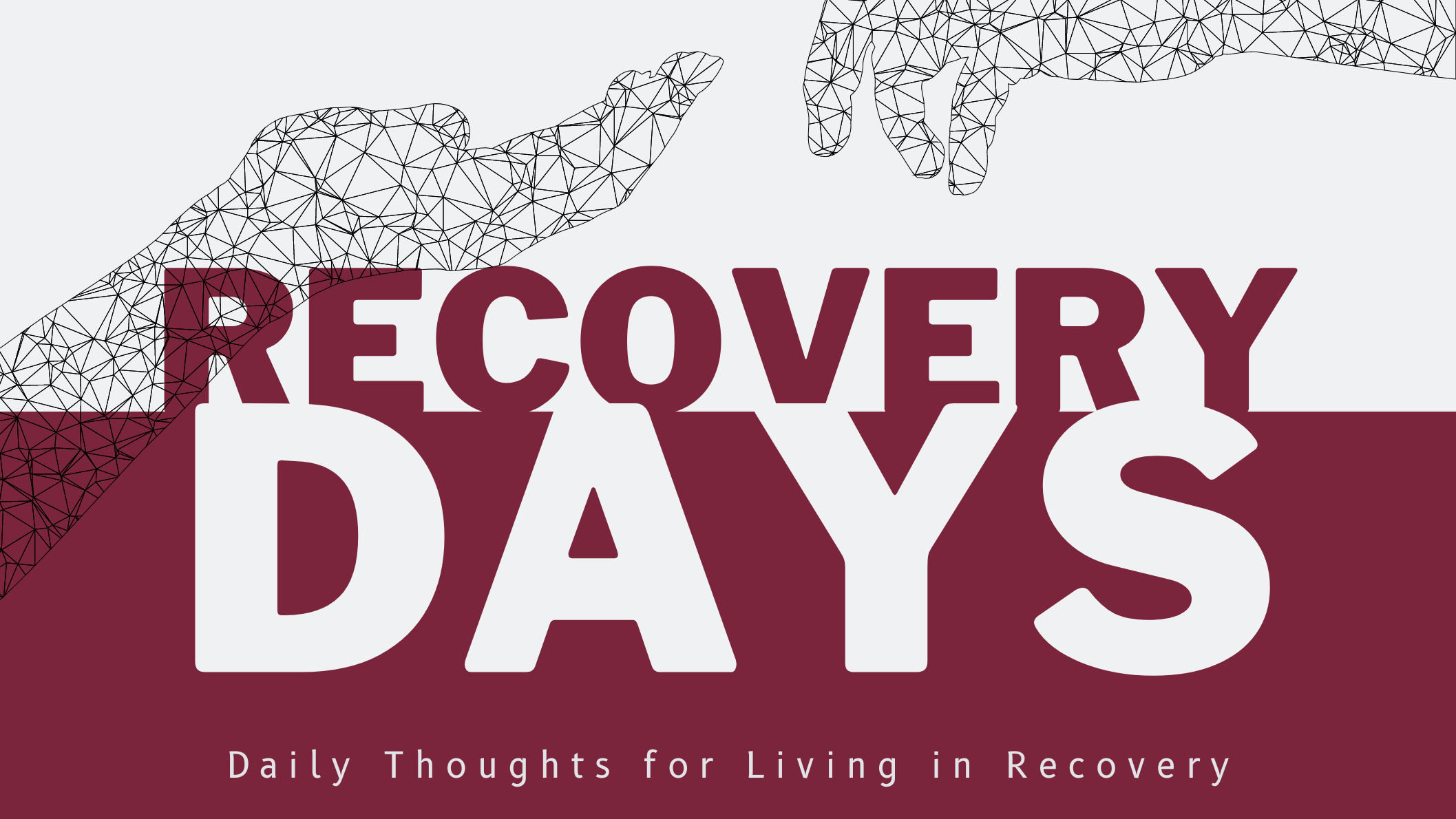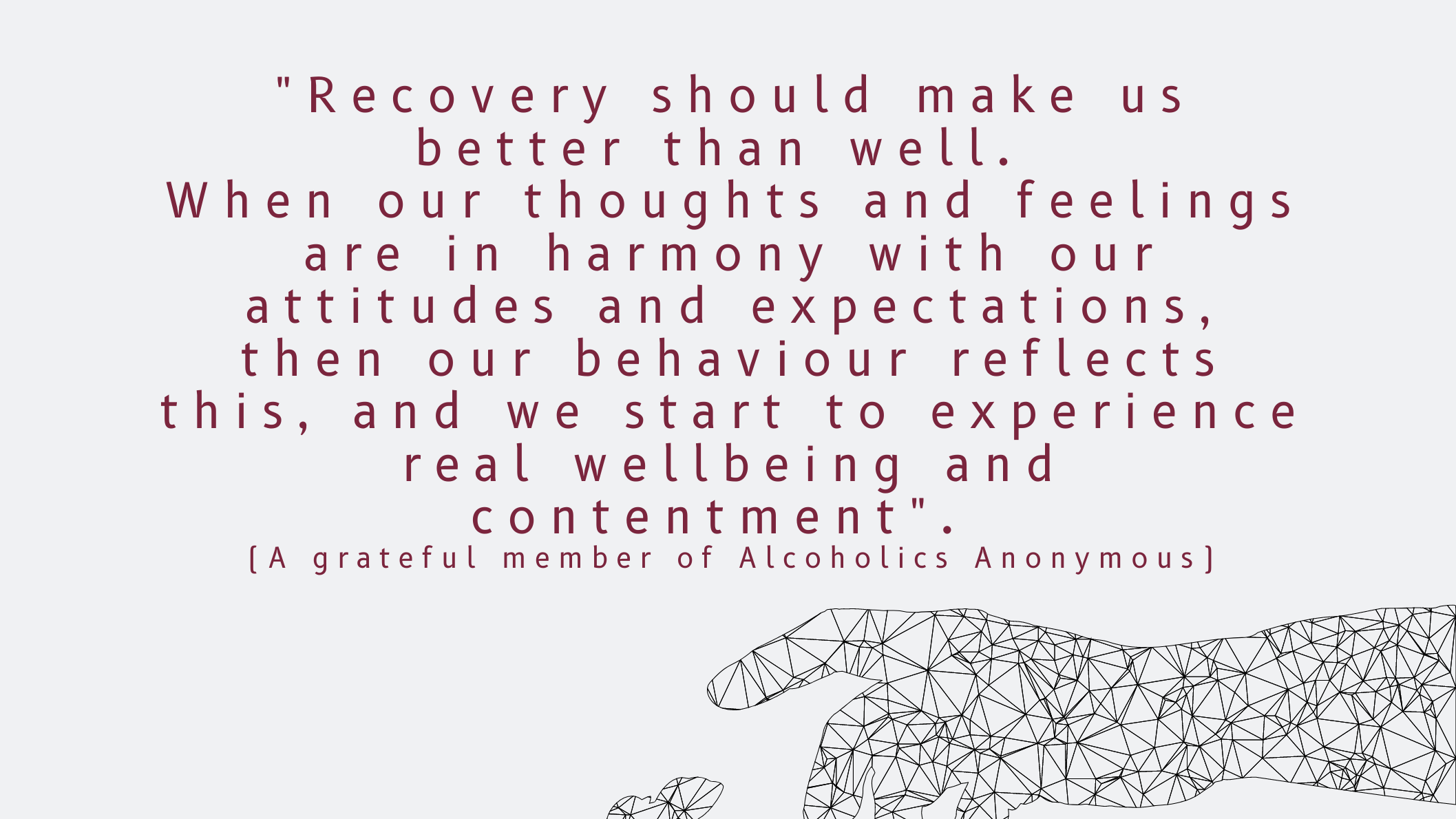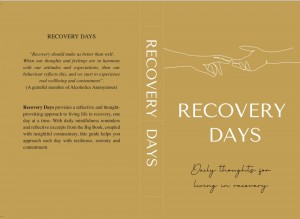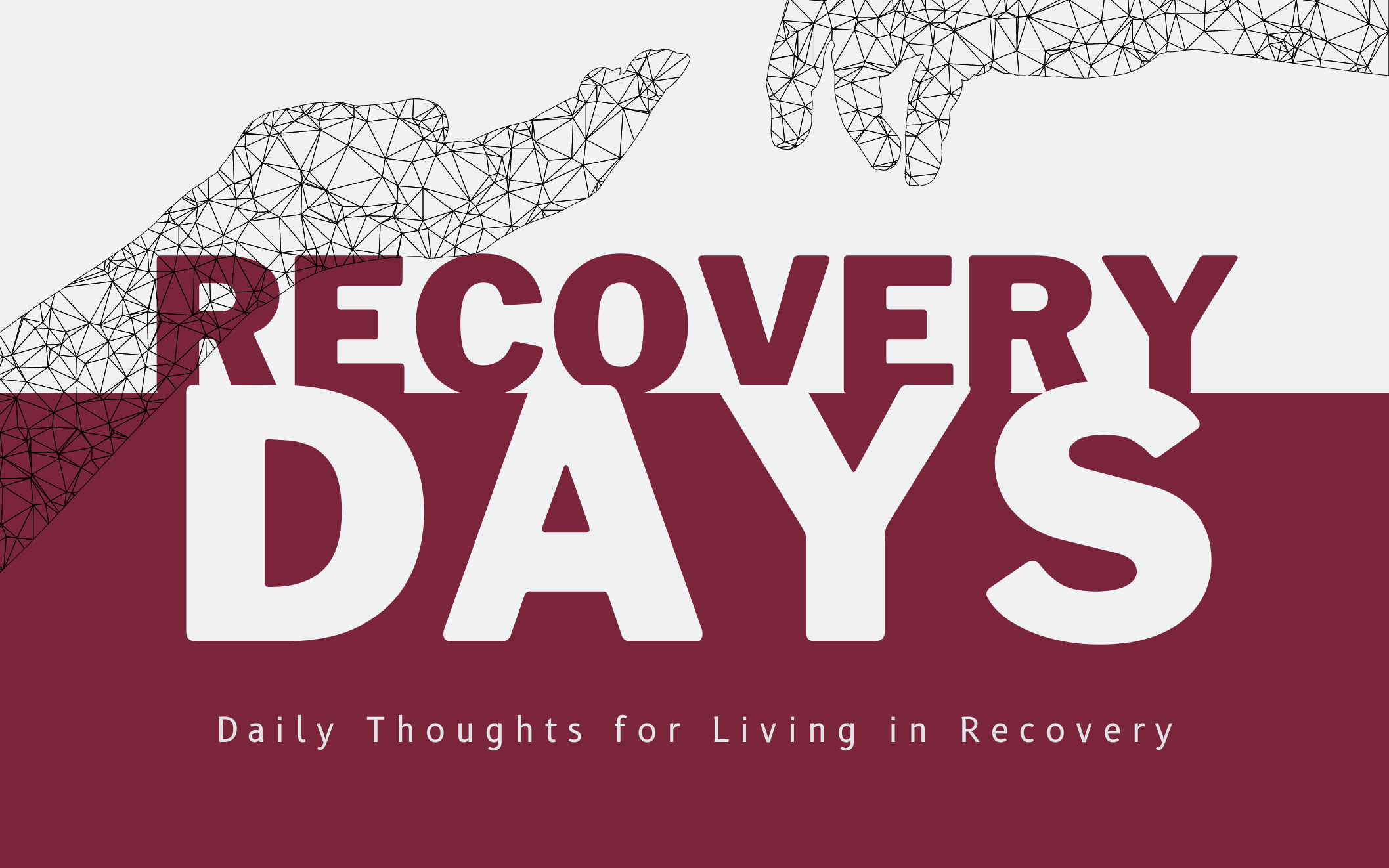
The author considers that a book of this kind is best appreciated when not complicated by the writer's own personality and therefore wishes to remain anonymous.
Recovery Days is quite a spiritual book – what is your background?
I grew up in a middle-class family in Yorkshire during the war World War Two and later trained to be a chartered accountant in London. I did not enjoy being an accountant because I had never passed a maths exam and I’ve always found numbers, unlike words, extremely daunting. Besides, when you are drunk as I often was, working with numbers becomes especially challenging. That’s probably why I was so unhappy. It didn’t explain why the drink took hold of me, but it certainly gave me an excuse for diving in headfirst. I married in 1966 and I was already drinking alcoholically then, although we had a loving marriage for many years.
My alcoholism eventually damaged things too much and for some years, I lived separately from my wife and children, though we saw each other regularly and latterly were reunited. I’m unhappy about this separation but, that is the past. The good thing about it was that I spent my time in Scotland working in a rehab which I helped to establish, putting my accountancy knowledge to good use at last. I later changed and became a therapist. I also during this time ran a small hotel in Peebles, Scotland.

When did you start writing?
From quite early on in my career I started writing articles for accountancy magazines on extremely boring subjects. Some of them were published. it is only in the last 10 years or so that I have been writing on a regular basis. I have written a great many articles on recovery from addiction and especially the aspect of creativity as a means of self-discovery and self-improvement. My first book was published in 2015 it’s called Poetry Changes Lives and it’s a daily book on the theme of what happened on this day, with a thought about that and a poem. I’ve published other books about recovery too.
Why did you write Recovery Days?
Dominic McCann, the CEO of Castle Crag told me that he was thinking of commissioning a book of daily reflections under the Castle Craig imprint. I offered to do the writing and he accepted. The book is the result of that. It took me six months to write and several more months to edit and I enjoyed the process enormously and learned a lot too.
What’s different about Recovery Days?
I’ve read a lot of daily meditation and daily reflections books, and some are wonderful, and some are very specialised and they’re all extremely well put-together. However, I did think that one or two of them were a bit old fashioned and I did think one or two of them were a bit too focused and dogmatic and, dare I say it a bit too serious. Of course, we are dealing with a very serious matter because addiction is a killer but that does not preclude the use of humour as a tool for recovery, in my view at any rate. I just thought that I would try and broaden the appeal of these kinds of books so that they might even help people who aren’t in recovery at all but simply struggling with everyday life. As we all know, that can be extremely complicated and stressful whether you are addicted or not.

Can you give an example of how you use humour in the book?
Well, I think some of the stories that I tell in the book, just as little vignettes, tend to have a bit of humour in them. For example, on a page about humility, I begin like this:
A healthy and happy husband came home one evening. ‘Today I’m ten years sober’ he announced, glowing with pride. ‘Isn’t that marvellous?’ His wife looked up at him. ‘So is the cat’, she said.
I just think that is a nice way of saying that some of us think we are more important than we really are, and we need humility to see reality. But I’m not sure that Richmond Walker, who wrote the famous 24 Hours a Day book in 1950 could have put something like that in his book because the stigma of addiction was so much greater then. He is incidentally one of my all-time heroes and I very much hope that if he was still alive, he would have given my book his blessing. Although he died in 1965, he set a very high standard for this type of book and also a very high standard of behaviour. He insisted on remaining anonymous despite having written and published such a powerful book.
Is there anything special about Recovery Days
Well, the book is designed to appeal to people of all kinds who are suffering from all types of addiction. Again, it is not intended just to be written for Christians. I mention Islam for example. I just hope that it will appeal to people who are running their lives in the best way they possibly can but who feel the need for a little bit of helpful input on a regular basis. That input is offered as support for personal development, rather than as a set of instructions.

What do you think people are looking for when they buy a book of this type?
I think people are looking for several things: something to think about – a bit of inspiration – a reminder of who they are – a reminder that they are not alone – and the feeling that, little by little they are on a path of spiritual growth and self-improvement generally. That’s quite a lot to get from a single page a day, but serendipity is a wondrous thing.
Any final thoughts?
Just that sobriety is such a life-changer. But at first, I saw it as an unbearable burden. How wrong I was. It’s the most wonderful of moments. If a drunken accountant can end up writing a book of daily reflections, then anything is possible. Seize every opportunity you are given.

Discover a New Dawn in Recovery – Every Day
Recovery Days: Embrace each day with renewed hope and insights that resonate with the times, transcending all addictions and beliefs. Dive into meditations inspired by timeless principles and contemporary culture alike. Step into a life where recovery isn’t just about abstaining, but truly thriving.
Embark on Your Journey – Start Reading “Recovery Days” Today


